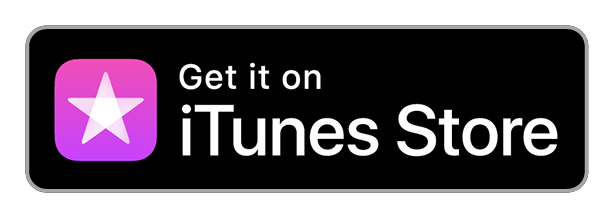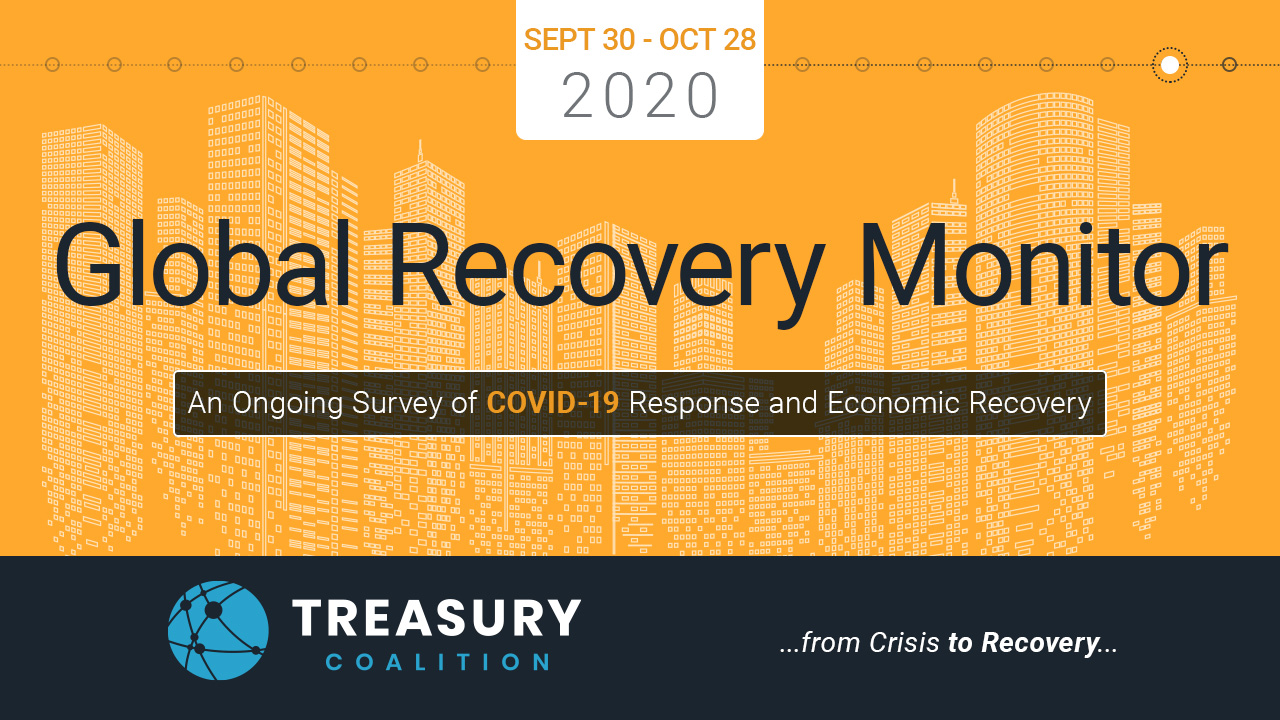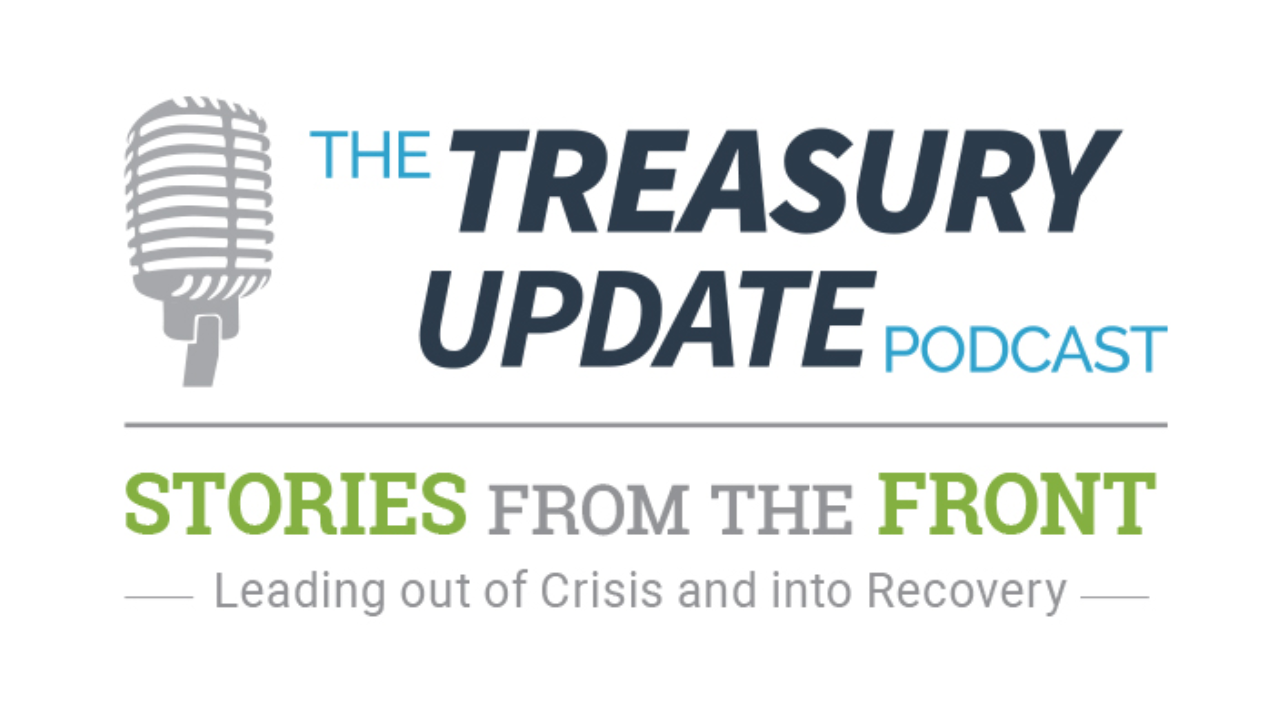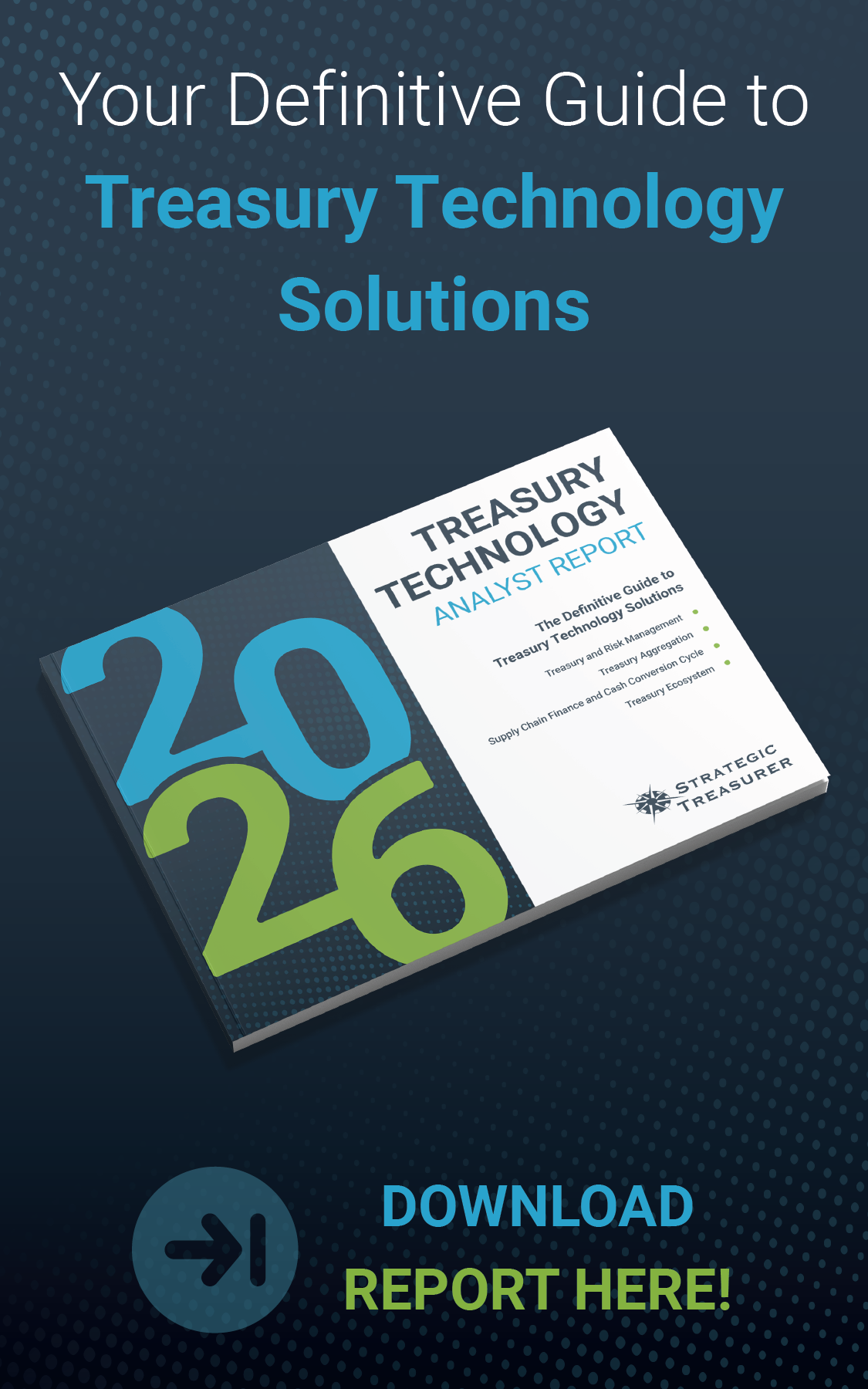
Episode 120
Stories from the Front: Adaptation of Higher Education
Host:
Craig Jeffery, Strategic Treasurer


Speaker:
Timothy Hesler, New York University

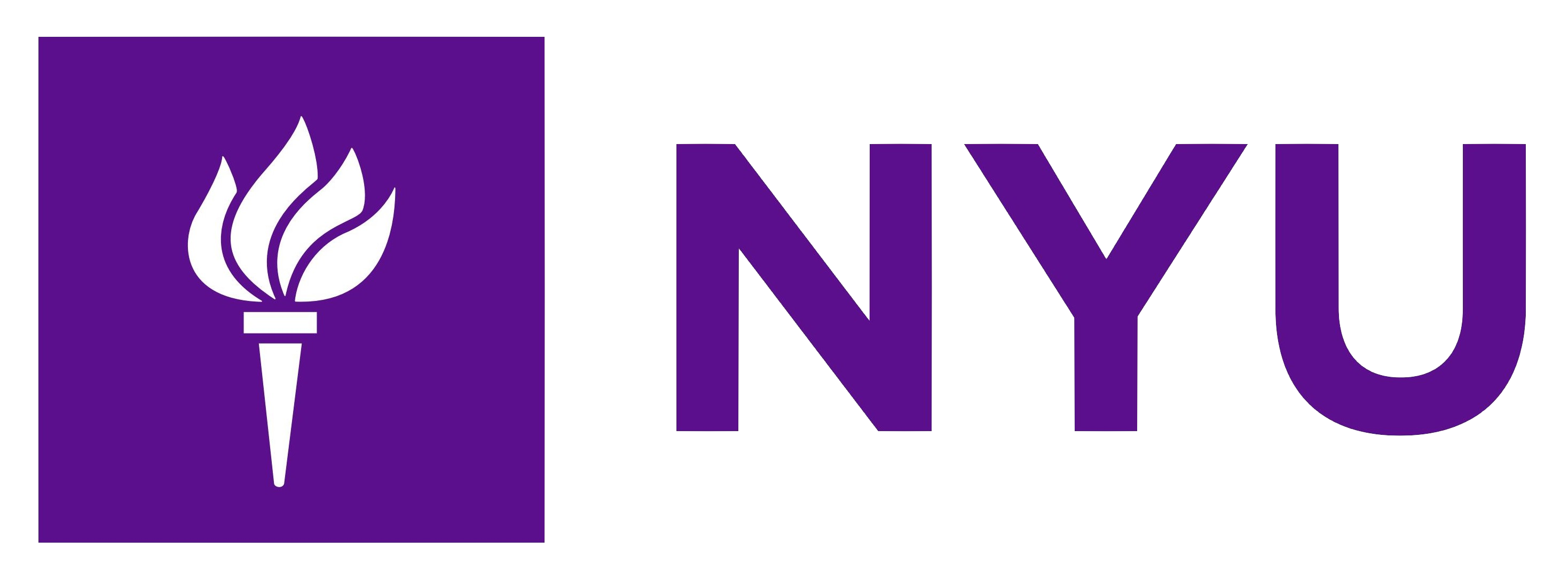
Subscribe to the Treasury Update Podcast on your favorite app!
Episode Transcription - Episode 120 - Stories From the Front: Adaption of Higher Education
INTRO:
On this episode of the Stories from the Front series, host Craig Jeffery joins Timothy Hesler, assistant treasurer of global banking, cash management, and treasury operations at New York University on the adaptation of higher education amid the COVID-19 pandemic. Topics of discussion center around transitioning to the work from home environment and its impact on treasury and performance, responding to cyber fraud escalations, working through technology issues, and more. Listen in and learn how to adapt and seize opportunities during crisis situations.
Craig Jeffery:
Welcome to the Treasury Update Podcast. This is Craig Jeffery. I am here with Tim Hesler. He is the assistant treasurer of global banking, cash management, and treasury operations at New York University. And our episode title is Adaptation of Higher Education. Welcome to the podcast.
Timothy Hesler:
Well, thanks for having me Craig, and it sounds like a really intriguing theme series, so pretty excited to be here.
Craig Jeffery:
Yeah, we’re having a lot of discussions across different industries and with tech providers and banks, so there’s quite a bit. And I know you’re on staff for the Treasury Management Association of New York.
Timothy Hesler:
Yeah. All good stuff to remember because I think I’ve been on the board for 20+ years and although it’s all virtual right now, the Treasury Management Association of New York and our annual conference, it actually seems to be re-energized, which is a little bit weird because we’re all kind of remote and doing things virtually. But conversations amongst our members, and I think energy levels, maybe not everyone has the same energy level, but we’re pretty thrilled how it’s going so far.
Craig Jeffery:
So just so you know, I did renew my membership for the next year today.
Timothy Hesler:
Thank you, thank you.
Craig Jeffery:
On the day of this recording, so you don’t have to yell at me.
Timothy Hesler:
Keep it as a record of payment.
Craig Jeffery:
This series about stories from the front, how we’re handling the different challenges that are going forward or disruption, and this idea of adaptation of higher education, I wanted to start just asking you about, when we began, I don’t know if you want to call it the crisis or the situation of COVID, where everyone moved to working remotely or working from home, maybe you could just tell us just briefly about what happened when you made the move and what were some of the challenges you found in the first weeks or first couple of months of this working remotely.
Timothy Hesler:
Yeah, thanks Craig. Thanks for the softball question. It seems like early March was a long time ago, it actually wasn’t so long. In that early March, we kept on hearing all of this, this bank in New York City, these guys went remote and this corporate went remote, and then it’s March 18th and we’re still not remote. And then it’s March 19th and then about 2:00, they said, “You’re working home so pack up your stuff and go.” And we were kind of prepared for this because we’ve had our business continuity plan written and documented and we’ve actually tested it. We didn’t have it as kind of a dull document that you had to find on a hard drive, we were actually using it, so it wasn’t that difficult for us to have our tokens ready and some of our tech ready and packed up things. But of course, we forgot things like dress shoes and sport coats and stuff like that.
Timothy Hesler:
And yet, it was probably much bigger than, of course, we ever would have thought of. And the university told all of our students, they’re going to go home for spring break, “Leave all your stuff in the dorm rooms and when you come back from spring break, we’ll get back to it.” We just initially thought, it’s two, three weeks. And we could not have been more wrong. And we knew it was coming, but it was still a surprise. We initially prepared all of our key tools and our passwords, and yet, there was still much more to be done.
Craig Jeffery:
Yeah. So, as you talked about, your business continuity planning document was active and live, it was something that wasn’t just on a shelf, did you have to do any tune-ups there?
Timothy Hesler:
We totally, totally did. We didn’t think about it maybe in the first week or so, but then we realized we had a real weakness here and I think many others experienced this as well. So we’re a lean, mean kind of treasury shop. We don’t have a lot of backups, coverage is always tough for us on vacations, we have to plan very carefully for that. But then we thought, “What if the other people in the team, they’re working from their apartment in Manhattan or their house from Connecticut or Westchester, or me where I live, what if our colleagues are incapacitated and what if they get sick? What if something even worse happens?” So, did we have that resiliency? And we thought we were pretty good, but I must say, as we went through the document and had some of our Zoom calls. I mean, here, we all had Zoom, we didn’t actually know how to use it. I mean, and people are yelling at people but they don’t know how to do the Zoom well.
Timothy Hesler:
We never really rolled it all out and no one really had vigorous training. So we’re working that through, but we really did have to say… I’m the primary signer for the university, I mean, I’m the primary approver for so many different things, but we needed to have that backup approver. And did that person know their passwords? Did they have their tokens? Did they even know the website? So we did have to beef up our document and do some training, so we actually had a lot of cross-training sections with my boss and the team to make sure if somebody gets sick, that we can rock and roll. We actually had to do that with our endowment office as well because although they’re in charge of four and a half billion dollars, we approve their transactions, so that coverage needed to be jazzed up a bit.
Craig Jeffery:
Yeah, thanks for sharing that. It’s funny to see how much had to be done to adapt things. We did the same thing with cross-training. We got a little concerned and we saw how much people are doing with updating their cross-training programs. And it’s an era, a time, of risk management. How do we reduce risks? But with that, in addition to the having BCP up and running, maybe just turning our conversation over to the human impact, and working from home is quite different for many of us and this could have an impact on treasury or other areas of the university or others of an organization and on performance. And I just wanted to see if you could weigh in on how that works. I know you talked about you got to work with Zoom or Teams rather than popping over to someone’s office but maybe just talk about the human impact and what you’ve been doing to keep everyone engaged and productive and…
Timothy Hesler:
Yeah, Craig, it’s something that the human impact you had to adapt and it’s both from a treasury and a performance relationship. Our organization focused first on the work. But then I don’t think we spent any time in the beginning of the awareness of how it would impact our employees and their families and the new kind of work-life balance. I think most of us can now say work-life balance is great, but it is a longer day. So I went out and I put out more and more team meetings so we can have those connections because there’s a lot of uncertainty. People had a lot of questions. I may not have had all of the new answers, but we always knew we were at mission critical, but it’s all magnified.
Timothy Hesler:
So in this new reality, we knew we had to do extremely well, we couldn’t have any errors, skills needed to be at their max. So we had some folks on the team, they needed more training on Excel and PowerPoint, or in some of the web portals, in the banks, in our treasury management system, because in the office, things tend to get washed around a little bit because you see people in the hallway, but if there’s errors and critical things that need to be done, I would say it was actually more noticeable and more glaring if there was an error. And we also saw, and I think most of Americans have seen, that there’s a certain amount of sloppiness on Zoom and Teams meetings and oftentimes, I’m on these calls and I’m the only one on video and there’s 12 other people and I see their name or their icon, and so we’ve been trying to force folks, I want to see what they’re doing, and it’s not rocket science to get that, but we want to be able to see that personal connection. It’s not perfect.
Timothy Hesler:
And we did see some folks on our team and other teams just disappear. I was like, “Are they still working at the organization? What are they doing? We don’t see emails. We don’t see them on calls.” So I think, like anything else, you want to get that face time with your boss and face time with your team. So, people are asking about their career, are they going to get… Something bad’s going to happen. And I’m like, “Listen, you don’t have control over a lot of that, but you do have control over your career and your work performance, so this is a time to shine and you don’t have to commute.”
Craig Jeffery:
Yeah, and you live in the New York area where commute is a significant chunk of your life.
Timothy Hesler:
Oh, it’s brutal. It’s a tough one. I have to say, I don’t miss any of the commute other than sitting on the train and reading the paper. That’s three hours I get back in my day.
Craig Jeffery:
Yeah, that’s amazing. Yeah, and the human impact, you just think about that. Some people, it’s like, okay, you hear animals barking or kids yelling. Everyone moved to work from home and became homeschoolers and there was just a lot of impact across the board, so very, very interesting scenario. But with that movement to remote working, criminals didn’t stop. And this issue of cyber fraud escalation is a significant issue. And you’re a thought leader and a communication leader on cyber fraud. You’re talking about this a lot. Maybe you could talk about what you saw and how New York University has responded, from what you can share.
Timothy Hesler:
We always want to be prevention ready all the time when it comes to the cyber criminals and shoring up our defenses and our communication. I think for us, we anticipated right from the get-go. So I think, we went out March 19th, I think the week after, we were already doing Zoom calls with PwC, with internal audit, with our CSO, our chief information security officer, because we’ve prided ourselves on our readiness and that sharing within finance, but we want to just get out there and have the experts tell us, is there some chinks in our armor. And I think for us, we did not see any real gaps for us. We were always talking about potential for email compromise or different types of phishing, and seeing that a criminal might go for it on a Friday afternoon or before a long weekend.
Timothy Hesler:
And it just made us emphasize over and over again, because I started writing more newsletters for finance, but if you saw a payment, or you saw some transfer, or you saw a request and it looked a little fishy to you, just looked a little bit off, maybe someone forgot to send you that email. So we just told everyone. And this actually came from our CFO and this is really not new to us, but more an emphasis. If it looks a little funny, just stop what you’re doing. Consult, ask some questions, talk to your boss, talk to the IT department. We’re not going to yell at you if you decide to hold the payment. We would rather have certainty on that payment, rather than just kind of rushing to do it because those criminals will take the money, close the bank account, real fast. A lot of them are from overseas. So we just put, slow down, consult, and ask questions. What’s the worst going to happen? A vendor gets paid late. I think we can work with that.
Craig Jeffery:
Yeah, yeah. I know ransomware’s picked up, other things have been issues, so thanks for that update. The other impact besides criminals being more active and continuing to escalate their attacks in this environment is the fact that everyone’s working remotely now, not for two weeks or two months, but now we’re onto the seventh month. And this idea that this has a pretty big impact on tech, the tech that we’re using, I mean, even upgrade processes, you’ve got to upgrade to your computer now IT doesn’t come by the desk. I was wondering if you could just talk about how you’ve looked at technology and what’s gone on and how you’ve worked through that.
Timothy Hesler:
I agree, we’re so dependent on our technology, we’ve had to adapt. I mean, we don’t have the IT support that we’re used to. And we were actually friends with those folks in my building and you had relationships and you can ask them in the hallway, but you can’t do that as easily. And it’s funny you should mention about upgrades and new software updates, we just had an article that came through our IT department, I sent that to the team, and I’m like, “Let me know if you have any questions,” because I actually on a daily basis will go and do my Windows 10 update, see if there’s something to do. You just go Windows update, up it comes, and all experts say that if there’s all of this constant updates, we know they’re a little bit annoying, but they’re fixing all those bugs.
Timothy Hesler:
Every time my iPhone has a big update, there was one last week, maybe 10 days ago, and then another fix over the weekend. I encourage my family because all of the things you’re doing for work on your technology, it’s funny because those things that you’re doing with technology at work often go right into your home life, so you kind of get that double benefit. The same thing for cyber security too, the same learnings and things you do to be tough at work against those fraudsters you can use for your personal life. But I must say that I sometimes felt like I was pretty good with technology, but I also felt like I was the help desk for family members or folks that they couldn’t get… First of all, why aren’t I seeing their picture on Zoom? Like for example, I just turned mine off because my bandwidth chopped a little bit, I know that trick, turn off the video, get a little boost of bandwidth.
Timothy Hesler:
But I was actually telling people about going in their basement and to their Fios, their Brainbox, which I had to do and go into my basement and hit the reset for 10 seconds. Surprisingly, I did that a number of times with my colleagues. And let’s face it, there’s a lot and it can be a little bit intimidating. People couldn’t map their network drives or save all this stuff. Why? Because they didn’t have their VPN on. Well, you guys have to turn it on because you need to be on that virtual tunnel to our network, all those bank tokens, the multi-factor authentication. We’ve got more MFN going on now than ever before. And frankly, I’d like to have extra multi-factor authentication. I’m kind of a breeze with that because it is so powerful.
Timothy Hesler:
And then there’s all those 50 passwords and the Cisco Jabber because if you’re a banking treasury guy, sometimes the bank has to do a callback and they need to call your official work number, so that work number has got to roll over to my mobile phone, so I’ve got to be around to do the callback. But some folks weren’t doing that correctly, or they were just waiting, they were just sending out emails. I’m like, “Why are you just sending out emails? Because no one’s responding to those emails, you’re number 68 on a thread. Why don’t you just call them up or do a one-on-one Zoom chat or do a GChat or an instant messaging or something like that? Because that helps to have that connection but you’re also using your technology and it’s all pretty easy to do.”
Timothy Hesler:
We also did see there was a lot of laptops that were dying. And no printers. I got around the no printer thing a while ago, but my Walmart $50 printer, basically, I think I maxed it out a few months ago. So I’m learning to go in and use PDFs and edit PDFs and use the signing function of PDFs. Actually, it doesn’t work every time, but that scanning on an Apple app or working around your printer, that’s made my life a lot easier. And it’s hard to say, when I get back to the office, maybe I’ll be happy with all the goodies, all that multi-function machine that’s the size of a car, but right now, you got to deal with your tech that you have.
Craig Jeffery:
You live in an area where there was a power outage, did that have an impact to you? And I know it did, but maybe you could tell us about that. And I don’t know if this falls under the… Do you have a secondary BCP for when you’re already working from home and then there’s a problem with power outage? So tell us about that.
Timothy Hesler:
Well, I think we learned the hard way in Superstorm Sandy, I think that was maybe about eight years ago, and that was a terrible storm. And so we all kind of ordered… People were using their cars to make phone calls and charging up their devices, so that was part of our BCP plan. But what was not in there, and it’s hard to put in our work document, work practices, we have a lot of outages. My power seems to go out all the time, but in the first week of August, and this is not atypical. We’re very fortunate it’s not the fires of California, it’s not the Gulf hurricanes.
Timothy Hesler:
And yet, this storm hit in early October, early August I’m sorry, and we didn’t have power, so we didn’t have power north of New York, a lot of the boroughs around New York did not have power, northern New Jersey down to central New Jersey, no power, Connecticut, no power. So if you had a generator, you’re probably rocking and rolling pretty well, but what if you run out of gas in your generator if you don’t have a whole house one, so I was running out of gas and leaving my house at 6:00 AM searching for gas stations to get gas, which is a pretty strange thing to do. And then you find out that the gas stations are closed because they don’t have power because they don’t have a generator.
Timothy Hesler:
So then you’re reliant on your cell phone. So then I was actually driving around, because I don’t get great cell phone reception at my house, driving around town, going to high points, and seeing if I can connect my phone to the VPN so I can get connected to the general ledger so I can approve payments and/or using one of the bank apps. We’ve got all of our bank tokens, our hard tokens, our soft tokens, so I’m driving around with my hard tokens, my soft tokens, on there. And I had a devil of a time just getting any connection. And I found out later that a lot of the cell phone towers, they also have generators and they were all running out of that.
Timothy Hesler:
So it’s hard to plan for plan A, B, C, and I felt like we were down to plan E on this. But we also had to just, when you got connected, tell your colleagues, “You’re going to have to cover this for me. I just can’t, I don’t have any power here. I don’t have any water,” or something like that. So very extreme. And was it life-threatening? I wouldn’t say it was life-threatening for me, but it was just that tech that you’re relying on, you got to learn how to adapt and higher ed needed to adapt to this, but also all those large corporates.
Craig Jeffery:
Good story about being adaptable in this area of different types of tech failures. But I also want to talk about other types of adaptations. This is the idea of everyone’s been more aware of what’s been going on of late, this idea of we’re working from home, there’s a challenge in processes, you can’t always get back to the office, and it’s not something we want to waste. I was wondering if you could share any ways that you’ve been able to make this change in environment, this elevated awareness, effective for treasury and for the university.
Timothy Hesler:
Yeah, it’s like that old saying, don’t waste a good crisis. It’s the opportunity to make stuff happen. We started planning this the week we went out and went remote because six years ago, I was really pushing, as one example, I was really pushing outsource our check printing because we have a lot of bank visitors and we’d take them to our Abu Dhabi conference room and they always pass by this room, that was the check printing room. And they would say, “Tim, what’s with the check printing? What are you guys doing?” And we actually had one gentleman in a locked secure room, and I couldn’t even get in, I didn’t have access to it, although here I am approving all the fundings, all the major payments, and we were doing that in-house.
Timothy Hesler:
So six years ago, I’m like, “We should just outsource this. The banks are great at this. They’re basically factory-like, they’ve got their centers that are near airports, it’s probably even cheaper, so we’d get a cost reduction.” And I got a lot of pushback, “We’re really good at this. And the guy on our team, he’s so awesome, he does it much better, and we didn’t do the calculation right, so it can’t be any cheaper.” So I’ll tell you, that week of March, I contacted two of our banks and we started those projects that week. So in fact, two are live and one is almost live. And I was right. I mean, it actually is, it’s not significantly cheaper, but it is cheaper. So we needed to be adaptable on this because we’re not in the check printing business. And all of our files that go back are payment files.
Timothy Hesler:
This is actually, everyone’s all nervous, something like, “Guys, sometimes it’s hard to get ahold of the bank. You know why? Because they’re doing so many check printing outsourcing projects, we’re just one of hundreds of these.” Luckily, we had leverage where the banks were able to get in there and get toward the top of that list. It turned out to be a really good decision for us. And it also made us think about, so those checks that we’re paying, okay, so now we’re outsourcing the check printing. So it’s really had no bad effect for our headcount because we were able to use that headcount and use him for other things.
Timothy Hesler:
But why are we paying these things by check? I mean, most of our stuff is electronic, but we’re a big organization. So I’m like, “Well, this is an opportunity, am I right guys? We’ve been talking about virtual payables with our bank.” So the more you get them to pay your vendors on a virtual credit card, payment card, the bigger our rebate will go up. So we kept on pushing and pushing on that. And frankly, as our P-Card spend went down because everyone’s doing expense mitigations, we’re no longer traveling, so that spend went down, the spend for our virtual payables went up. So, we won’t get the big fat rebate we’ve gotten in the past, but we also got a little pushback from our AP department because how do we convince those vendors to take this? Because there’s a interchange fee. You need to remind them that they’re on our preferred vendor program. That’s a good statement to make so they know they’re special, but they’ll get paid within one or two weeks on the virtual card, rather than waiting 60 days for a check or 30 to 45 days for an ACH.
Timothy Hesler:
So the sooner they get paid, the sooner they can go and fund their payroll, because as we’ve seen, in this terrible crisis, there’s been a lot of companies that’s fighting for payroll and fighting to have enough funds to make their payments to vendors. So that acceleration of the payment, I think, was something that was easier to sell. Don’t get me wrong, we still have a lot more to sign up, but it made us do more on virtual cards, more on ACHs. And our payment terms were kind of already extended, which I kind of went over. We actually didn’t have to change our payment terms because we had that kind of locked down.
Timothy Hesler:
And one thing I would just say, we’re talking about payments and adaptation and things like that, you still have to protect that vendor master file because with all these changes going on, they still need to, so if a vendor wants to change their payment instructions, that needs to be a well-controlled process where we’re not just going to do it because a vendor says so. So sorry I kind of jumped around there a little bit Craig, but I thought it was a good opportunity to change the way we’re paying vendors because we already pay our employees really well, but vendors, we’ve got a whole toolkit. So let’s use the different tools.
Craig Jeffery:
Don’t waste a crisis, like you said, or it acts as an accelerator for all those things you’ve been trying to do.
Timothy Hesler:
Yeah, yeah. It’s a call to change.
Craig Jeffery:
Yeah. So thank you for your time and sharing so much of this information. I wanted to give you an opportunity at the end to share any final thoughts, any good leave-behinds for others. And it doesn’t have to be leave-behinds for others just in higher ed, but it could be any industry. What would you like to share?
Timothy Hesler:
Yeah, yeah, thank you for that Craig. I’d say, get in front of issues. I mean, we’re a very proactive organization. We’re a large one, we’re almost 200 years old. We’ve got that big presence in Greenwich Village, in Brooklyn, and in our 12 sites around the world. But get in front of it, try and anticipate. And as a treasury finance person, I would watch those markets on a daily basis. I’m still reading my Wall Street Journal daily, I’m still looking at Barron’s on the weekend, I’m looking at different websites, I get a plethora of information from our banks about the markets. But the markets can change so quickly.
Timothy Hesler:
And I give ourselves a real pat on the back, when the CP market almost collapsed, and it happened so rapidly, we were well in touch with the money markets and our investments. So by looking for this, being a little suspicious of the markets, and tracking what’s going on in the credit scene behind, we were able to move like $550 million out of prime money market funds to govie funds in the beginning of that really poor week. And we did it in two days. So, we got rid of all that credit exposure, and when things calmed down later, I mean, rates are close to zero, so it’s not really that exciting, but we’re back in prime money market funds. And it forced us to expand the universe of what we might invest in.
Timothy Hesler:
And you’ve got lines of credit with your banks, well, there’s other markets about short-term borrowing, think about those. So that speed in the markets is absolutely essential. But don’t forget the proper governance and stewardship. And with the crisis, granted, no one’s traveling and spend is down for so many large organizations. They had to cut their expenses to protect their revenue. But you can’t lose fact of proper governance, going through the proper channels, using your delegation of authority policy. We did a great job, and we generally always do, but just to make sure that things are well-controlled and properly explained.
Timothy Hesler:
And then I guess the last thing I’d say is on those human connections. I think, in some ways, in the beginning of the crisis, you didn’t hear on the people’s side from the organization, it was all about reacting and making sure everyone was safe. But they didn’t have much about connecting with your employees. I know we talked about this a little bit before, you can’t track people down in the office. I used to do things, I used to just leave my office and go and do drive-bys and just find folks in the building and find the budget team or the AP team. Or if I had a question for payroll, I’d go grab them. So you can’t do that as easily.
Timothy Hesler:
And so be available and reach out and be proactive about that. You’ll be surprised and you think, oh, you don’t want to bug them because they’re really busy, but they may have missed you. Well, assuming you’re in a friendly relationship. I’ve actually been so glad to talk to people. And we know we want to see each other, it may be a while because we want things to be safe, but those are my friends, those are my colleagues. And I found that you get in a period of couple hours, you don’t want to do anything, but you got to force yourself to stay fresh with your connections because you all work together and I think it’s kind of your responsibility and it might make you feel a little better in light of all the constant change and ups and downs in our marketplace.
Craig Jeffery:
Tim, thank you so much for sharing all these different stories from the front.
Timothy Hesler:
Oh, you’re quite welcome. And thanks, and I really enjoyed it. Thanks for having me.
OUTRO:
You’ve reached the end of another episode of The Treasury Update Podcast. Be sure to follow Strategic Treasurer on LinkedIn. Just search for Strategic Treasurer. This podcast is provided for informational purposes only and statements made by Strategic Treasurer, LLC on this podcast are not intended as legal, business, consulting or tax advice. For more information, visit and bookmark strategictreasurer.com.
Related Resources
This survey provides rapid exploration and response reporting on major factors impacting treasury and finance organizations. This effort is supported by the Treasury Coalition which consists of leading solution providers leveraging their networks to ensure comprehensive results for the good of the profession. Complete for early access to the results!
Stories from the Front – A Treasury Update Podcast Series
This series within The Treasury Update Podcast features interviews with treasury and finance leaders exploring: challenging situations; fresh ideas, innovative approaches, case studies and recommendations from senior treasury practitioners. These stories from the front provide a transparent look at various industries and challenging situations that provide insights and wisdom to help guide the profession into a proper mindset and approach as we continue the path of recovery.


